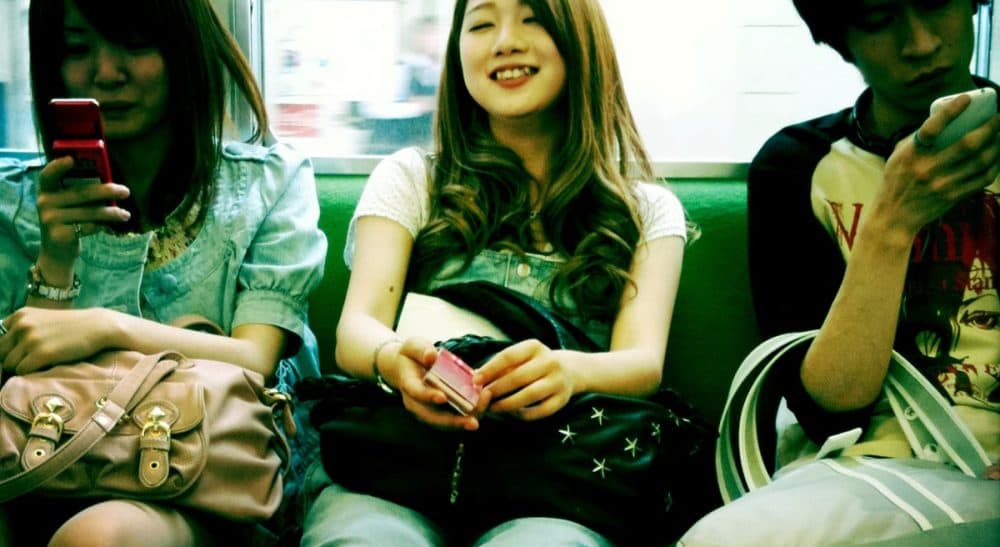Advertisement
The App Generation: How Technology Is Changing Us

In 1950, with two younger colleagues, lawyer-turned-sociologist David Riesman published “The Lonely Crowd.” This portrait of changing American values had the rare distinction of being both a bestseller at the time and a classic of scholarly writing.
Though not quite of Twitter brevity, the argument put forth in the book can be easily summarized. In the 18th century, American colonists were tradition directed: they looked to those who came before, typically from Europe, for patterns of what to believe and how to behave. In the 19th century, the new Americans were inner-directed. Having broken the shackles of European mores, often setting out to the far frontier, they sought to develop their own internal compass. By the middle of the 20th century, Americans had become other-directed. Living primarily in cities and suburbs, they consumed mass media and sought to buy, behave and believe in the ways that their neighbors did.
Some 60 years later, it is certainly possible to discern vestiges of tradition-directed and of inner-directed Americans. And the enduring influence of peer behavior and values underscores the prescience of the Riesman analysis; we still want to keep up with the Joneses, and increasingly, with the Jins and Juans from other cultures. Yet today, the behavior of Americans, and especially of young Americans, is increasingly directed not by other human beings, past or present, but rather by apps, technologies that are held in the hand, activated by a touch of the finger, and so constituted that they carry out more and more of the tasks and asks of daily life. Indeed, in a tribute to Riesman and colleagues we speak of this as an app-directed generation.
Born after 1990, members of this generation have been surrounded and immersed to an unprecedented degree by technology: laptops, tablets, smartphones, handheld devices of every size and shape. Unlike so-called digital immigrants, they cannot remember a less technological era; indeed, unlike every previous generation, most of them do not even know what it is like to be lost. For if they’re without their handhelds or GPS for some reason, their parents and friends still have theirs.
This generation expects that every aspect of life will be quick, efficient, streamlined, available immediately on demand, tell you what to do, how to do it, how others feel about it, and, at least implicitly, how you should feel about it, how you should feel about yourselves.
Asked for the most important events in their lives, they are the first generation not to mention political, economic, or cultural events; instead they talk about the domination of the Internet, the Web and an ever-evolving spate of social media.
But it's not just technology in the broader sense: This generation expects that every aspect of life will be quick, efficient, streamlined, available immediately on demand, tell you what to do, how to do it, how others feel about it, and, at least implicitly, how you should feel about it, how you should feel about yourselves.
App-directedness affects every sphere of life. One’s identity, as presented on social networks like Facebook, should be clean, neat, easy to capture, positively rendered; no time or space for the exploration of alternative or complex identities. One’s relation to others should be easily described, efficiently executed, easily joined and disbanded with equal ease; difficult face-to-face encounters should be avoided as much as possible, deep probing of motivations should be shunned.
Strikingly, people today have diametrically opposed views of this trend, this phenomenon, this new variety of directedness. For some, a world of apps approaches utopia; how wonderful it is to be able to accomplish whatever one wishes readily and then move on to the next assignment or enticement. For others, an app-suffused world is a dystopia; all aspects of human agency, individuality, creativity have been reduced to an algorithmic formula.
We take a less apocalyptic stance. In our view, apps will neither create nor destroy utopias. We prefer to contrast a life of app enablement with a life of app dependence. The app-dependent person relies completely on the existing set of apps; and if an app does not exist, or is not sufficiently agile, he simply abandons course. An app-enabled person makes ample use of apps. But rather than simply following the app blindly, he allows the app to free his time and energy so he can take in more of the world, have richer experiences alone or with others, treat app options as hints rather than dictates.
We like to reflect on the life path taken by Steve Jobs. Clearly Jobs admired apps, and he probably had as much to do with their invention and proliferation as any person on the planet. Yet just as clearly, Jobs never slavishly followed anyone else’s script. Indeed, in his life, one can see signs of tradition directedness (his interest in Eastern spirituality), inner-directedness (his following his bliss through lengthy Wanderjahre) and other-directedness (his keen attention to what rival media and technology companies were doing).
Perhaps that is the best lesson from a Riesman analysis: we should try to combine the strengths of tradition, our own strivings, the examples of others, and the affordances of technology.
This piece was co-written by Katie Davis. Davis is an assistant professor at the University of Washington Information School, where she studies the role of digital media technologies in adolescents' academic, social, and moral lives.
Gardner and Davis are the authors of "The App Generation" (2013, Yale University Press).
